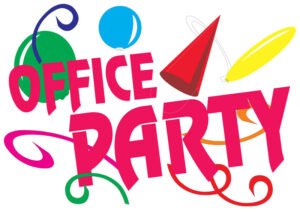Among the most frequently asked questions I encounter from both employers and employees involves whether or not time spent traveling to and from home or from work to a particular jobsite is compensable. Closely on the heels of that is the question of how to deal (and pay or not pay) with an employee who needs frequent breaks during the day to deal with medically necessitated breaks. On April 16, 2017, the US Department of Labor (DOL) issued additional guidance on these two topics.
The issue of whether or not an hourly employee is entitled to pay for travel time is governed by the Fair Labor Standards Act (“FLSA”). In general, a non-exempt (hourly) employee must be paid for all time, at their regularly scheduled rate of pay, for all time they are “working” for the benefit of the employer. However, travel time is of benefit to both the employer and the employee, opening up a confusing area of the law. To address this, the FLSA was amended by what is known as the Portal to Portal Act (the “Act”).
In particular, the Portal-to-Portal Act provides that employers are not required to pay for the time employees spend on activities occurring before or after (“preliminary or postliminary”) they perform the principal activities for which they are employed. For example, compensable working time generally does not include time spent:
- Traveling to or from work.
- Engaged in incidental activities before or after work.
The US Supreme Court has interpreted the Act as requiring compensation for time spent on activities which are “integral and indispensable” to an employee’s principal activities. For example, washing up before or after work is generally not compensable working time. However, if the job involves particularly caustic or toxic materials, washing up may be integral and indispensable because it involves worker safety and is therefore compensable.
Travel time often depends on the type of travel involved and when it occurs. As the DOL notes, an employer must first determine an employee’s “normal work hours” to determine if travel occurs within those hours. For example, if an employer schedules a training exercise during normal work hours, travel to that training may be compensable time.
Generally, travel from a hotel and a worksite away from home is normally not compensable. Nor is time spent commuting from home to work, even where the employee’s work site varies. However, time spent between job sites is compensable. This would include travel from an office or meeting location where an employee may receive work instructions (such as an itinerary) to a job site.
Another area of concern comes into play with paid rest breaks and the interaction with a medical necessity under the Family and Medical Leave Act (“FMLA”) to take more breaks than the employer normally gives its employees. Employee rest breaks (again for non-exempt employees), up to 20 minutes are generally compensable because the DOL considers them to be primarily for the benefit of the employer in having fresh employees perform work. However, situations arise where the rest breaks are primarily for the medical benefit of the employee. An example of this is the commonplace medical requirement that an employee be allowed to take more than the allotted rest periods in the day due to a medical condition. Often this manifests itself in a doctor’s order that the employee be away from a keyboard or refrain from sitting or standing for extended periods of time, or not lift heavy objects for more than a certain period of time. In those instances, the extra break time is clearly for the benefit of the employee and the employer is not obligated to pay the employee for that time. However, the DOL notes that employees taking breaks for FMLA-protected reasons must be compensated for as many breaks as other co-workers.
Paying employees properly, whether it be for time working, time traveling, time off for medical issues, or time worked over 40 hours in a single workweek can be complicated. Let the experienced professionals at Boznos law help you through these issues.
With over 34 years’ experience in advising employers and employees on workplace issues, let Boznos Law work with you to ensure you are ready to meet the challenges posed by the changes to the employment laws. Call Bill Boznos today at (630) 375-1958 or contact us at www.boznoslawoffice.com/contact-us through our website.


